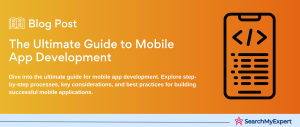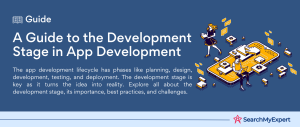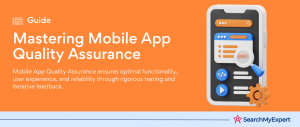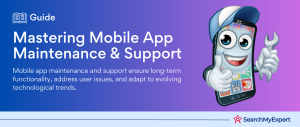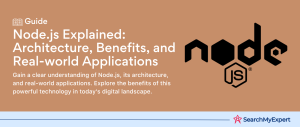Hybrid app development has become a cornerstone in the tech industry. With the rapid evolution of technology, businesses are constantly on the lookout for the best frameworks to create seamless and efficient apps. In this article, we delve into the top hybrid app development frameworks that are set to dominate 2023.
1. Ionic: The Front-Runner in Hybrid Development
Ionic has consistently been a top choice for developers worldwide. Established in 2013 by the trio Max Lynch, Ben Sperry, and Adam Bradley, Ionic has carved its niche in the hybrid app development sector.
Key Features of Ionic:
- Web Technology Base:
Built on the pillars of HTML, CSS, and Javascript, Ionic offers a familiar environment for developers. - Native Features Access: Ionic ensures that hybrid apps can tap into native mobile features, bridging the gap between hybrid and native apps.
- Regular Updates: With the recent unveiling of Ionic 6, the framework continues to integrate with other popular frameworks like React, Angular, and Vue.
- Cross-Platform Compatibility: Ionic apps are versatile, catering to both iOS and Android platforms.
2. Xamarin: Microsoft’s Gem for Hybrid Development
Xamarin, a brainchild of Microsoft since 2011, offers a unique blend of C# and .NET for hybrid app development.
Key Features of Xamarin:
- NET Integration:
Xamarin seamlessly integrates with the .NET platform, offering a plethora of tools for developers. - Code Reusability:
Xamarin’s standout feature is its ability to reuse code across multiple platforms, ensuring consistency and efficiency. - Platform-Specific Libraries:
Developers can tap into exclusive libraries, gaining access to APIs from tech giants like Google and Apple.
3. Flutter: Google’s Answer to Hybrid Development
Flutter, Google’s offering to the hybrid development community, has been making waves since its inception in 2017.
Key Features of Flutter:
- Dart Language Base: Flutter apps are crafted using the Dart language, known for its ahead-of-time (AOT) compilation.
- Hot Reload:
This feature allows developers to instantly view changes, streamlining the development process. - Adaptive UI: Flutter boasts a range of widgets, ensuring apps are responsive across devices.
4. Apache Cordova (Formerly PhoneGap)
Apache Cordova, previously known as PhoneGap, is a stalwart in the hybrid app development scene.
Key Features of Apache Cordova:
- Web Technologies: Apache Cordova is rooted in web technologies like HTML5, CSS3, and JavaScript.
- Web-View Feature:
This unique feature allows for layout rendering by web-view, ensuring a seamless user experience. - Plugin Support:
Cordova offers a suite of plugins, both core and third-party, to enhance app functionalities.
5. React Native: Meta’s Contribution to Hybrid Development
React Native, developed by Meta (formerly Facebook), has revolutionized the way we perceive hybrid apps.
Key Features of React Native:
- Native Rendering: Unlike other frameworks, React Native apps render using native APIs, offering a genuine native feel.
- Direct Access to Native Elements: React Native apps can effortlessly access native elements, ensuring a smooth user experience.
- Rapid Development: The framework accelerates the development process, thanks to its extensive library and tools.
6. NativeScript: A New Age Hybrid Framework
NativeScript has emerged as a formidable player in the hybrid app development arena. Its ability to create truly native mobile apps using Vue.js, Angular, or plain JavaScript sets it apart.
Key Features of NativeScript:
- Direct Access to Native APIs:
With NativeScript, there’s no need for wrappers or additional plugins. Developers can access any native library directly. - Single Codebase: Write once, run everywhere. This principle ensures that developers can maintain a single codebase for both iOS and Android platforms.
- Rich UI Components: NativeScript offers a plethora of UI components that are not only visually appealing but also highly functional.
7. Appgyver: The No-Code Revolution
Appgyver is a game-changer for those who wish to delve into app development without deep coding knowledge. It’s a platform that promises robustness without the complexities of traditional development.
Key Features of Appgyver:
- Visual Builder: Create apps using a drag-and-drop interface, making the process intuitive and user-friendly.
- Data Integration: Appgyver offers seamless integration with various data sources, ensuring your app is always connected.
- Cross-Platform:
Whether it’s web apps, desktop, or mobile, Appgyver ensures your application runs smoothly across all platforms.
8. Framework7: Crafting High-Quality iOS & Android Apps
Framework7 is a full-featured framework for building iOS, Android, and desktop apps. It’s tailor-made for those who prioritize the look and feel of their applications.
Key Features of Framework7:
- Rich UI Components: Framework7 is packed with a rich set of UI elements that are both visually stunning and interactive.
- Single Codebase:
Just like many modern frameworks, Framework7 emphasizes writing once and deploying everywhere. - Extensive Documentation:
For budding developers, Framework7 offers comprehensive documentation, making the learning curve gentle and enjoyable.
9. Quasar: High-Performance Apps with Vue.js
Quasar, built on the Vue.js framework, is designed for those who prioritize performance without compromising on aesthetics.
Key Features of Quasar:
- Vue.js Foundation: Harness the power and simplicity of Vue.js while building your hybrid app.
- Component Rich:
Quasar offers a wide array of components, ensuring developers have all the tools they need. - Optimized Performance:
Quasar apps are not only fast but also optimized for SEO, ensuring a broader reach.
To wrap up, the world of hybrid app development is dynamic and filled with opportunities. Each framework brings its unique strengths to the table. As we progress through 2023, it’s essential to stay updated and choose a framework that aligns with your project’s goals. Whether you’re a seasoned developer or just starting out, there’s a framework out there that’s perfect for you. Dive in, explore, and let your creativity soar!
Navigate the App Renaissance with leading Mobile App Development Companies.
Table of Contents
Toggle

